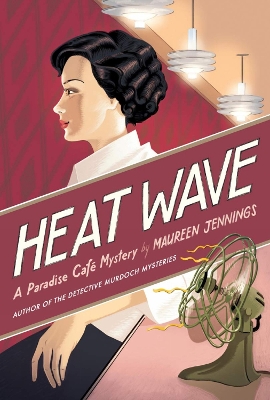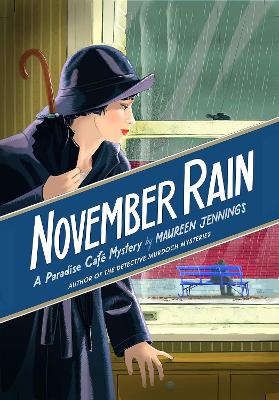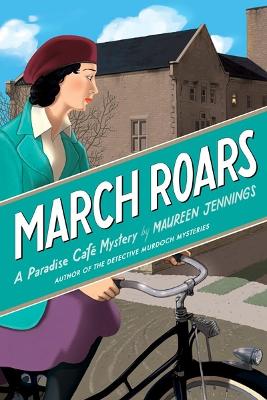Paradise Cafe
2 primary works • 3 total works
Book 1
Book 2
“This is the second book in the Paradise Café series featuring private investigator Charlotte Frayne and it’s even better than the first. Jennings has made the jump from Victorian Toronto to the Depression era with ease and, once again, proves that Canadian history is far from dull.” — The Globe and Mail
Charlotte’s boss at T. Gilmore and Associates takes off on a mysterious trip to Europe, leaving Charlotte in charge of the detective agency. Mrs. Jessop hires the newly promoted Private Investigator to inquire into the untimely death of her son, a veteran injured in the Great War. The police ruled it a suicide, but Mrs. Jessop doesn’t agree and wants Charlotte to find out what really happened.
Then Charlotte is hired to infiltrate a small women’s wear manufacturer to uncover communist agitators. When the factory supervisor is murdered on the job just as Charlotte starts to look into it, she gets seconded to the police to help find out what happened.
The November clouds darken and Charlotte is left to struggle to solve two mysteries at the same time — until they intersect. Add an aging grandfather, an absent boyfriend, and a mad scheme to mount a controversial play at the Paradise Café and Charlotte has her hands full.
“A grave injustice.” Those are the words in the letter sent to Charlotte Frayne, P.I., on a cold March morning.
The newspapers have reported on the arrest of two Black teenagers in a burglary, but did the pair actually commit the crime? Not according to the letter’s sender, Mrs. Olivia Brodie. A resident of the Toronto House of Industry — “the poor house” — Mrs. Brodie was running an early morning errand when she witnessed, on the morning of the crime, two men behaving in a suspicious manner near the burgled home: two white men.
Meanwhile, Charlotte is investigating another theft — this one at the home of a woman on the opposite end of the social hierarchy. As she juggles her investigations, Charlotte finds unexpected links between people and personal histories, along with more than one “grave injustice.”


